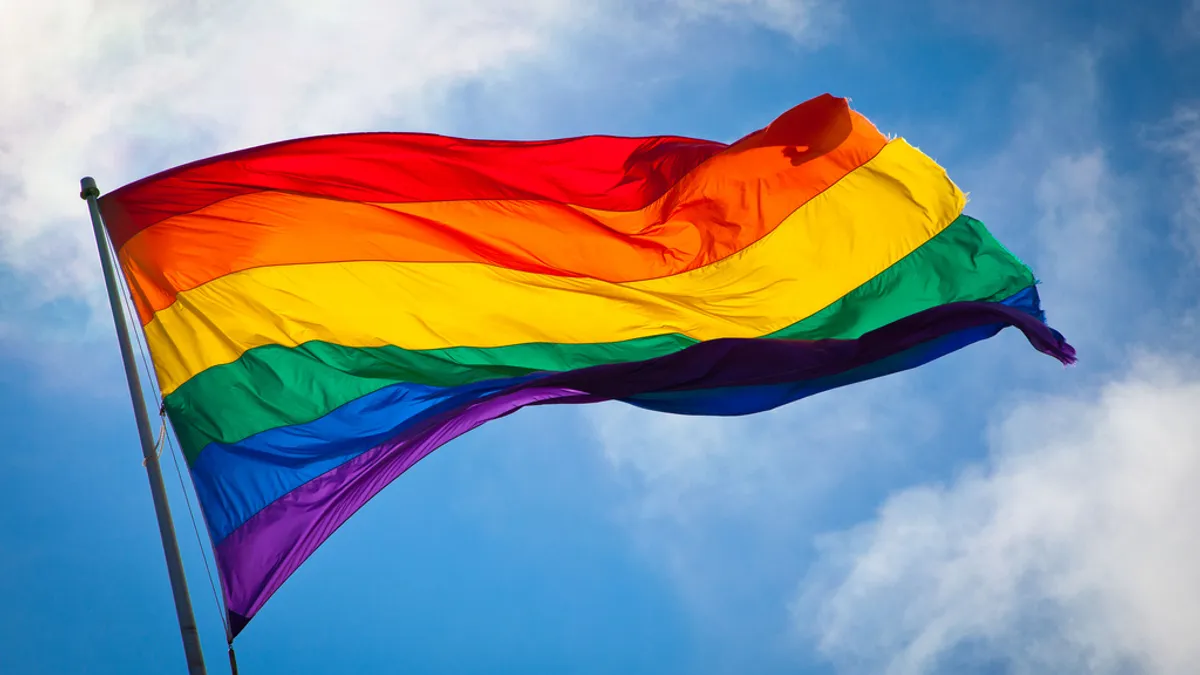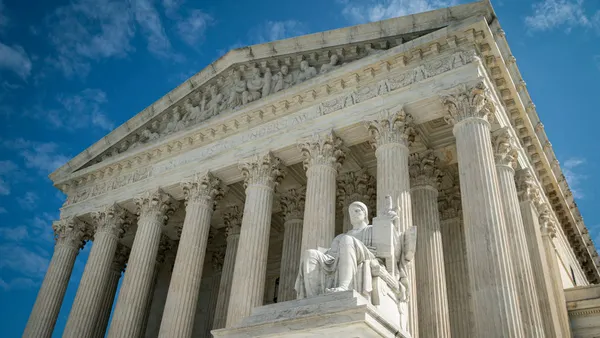Dive Brief:
- The Trump administration (through the U.S. Department of Justice) has filed a friend-of-the-court brief urging the 2nd Circuit to find that employees are not protected from discrimination based on sexual orientation.
- The U.S. Equal Employment Opportunity Commission (EEOC), an independent federal agency, also filed a friend-of-the-court brief, recommending the court take the exact opposite course and hold that Title VII of the Civil Rights Act of 1964 prohibits sexual orientation-based discrimination.
- The case in question, Zarda v. Altitude Express, Inc., No. 15-3775, involves a skydiving instructor who alleged that he was fired because he was gay. The appeals court initially held that federal law provided him no protections, but it has since agreed to reconsider its ruling.
Dive Insight:
EEOC has for years interpreted Title VII to cover sexual orientation, theorizing that it’s a form of sex stereotyping, which courts have said can amount to sex discrimination. For example, firing a man because he acts, in the employer’s view, too feminine, can be sex discrimination; that’s because the employer presumably wouldn’t fire a woman for behaving in the same manner. Therefore, sexual orientation must be covered, the agency says, because if a woman is fired because she is a lesbian, that’s also termination for failing to live up to a gender stereotype.
Opponents — a group that now includes the U.S. government — disagree. Title VII does not prohibit employment practices that consider the sex of employees as long as they don’t impose different burdens on similarly situated members of each sex, DOJ said in its brief. For example, an employer necessarily considers the sex of its employees when maintaining and enforcing sex-specific bathrooms, which doesn’t violate Title VII because the employer isn’t discriminating between members of one sex and similarly situated members of the opposite sex.
And despite the EEOC’s responsibility for enforcing Title VII in the private sector, “the EEOC is not speaking for the United States and its position about the scope of Title VII is entitled to no deference beyond its power to persuade,” DOJ told the court.
Only one federal appellate court, the 7th Circuit, agrees with the EEOC. But with the 2nd Circuit reevaluating its position — and the 11th Circuit also considering whether to do so — a circuit split could soon require the U.S. Supreme Court’s intervention. Considering the High Court’s makeup (especially its newest addition’s distaste for agency deference), experts say the Court would likely find that sexual orientation is not a protected class under current federal law.
Regardless, employment law attorneys continue to recommend that employers refrain from discriminating against applicants and employees based on their sexual orientation. It’s a risky move considering that acting on gender stereotypes can be illegal. As one court put it, these rulings have created an “odd state of affairs:” a gay employee who also, in his employer’s view, looks or behaves in a gender non-conforming way (by dating another man, for example) is likely to fare better in court than an employee who is merely known to be gay.
Employers also should note that many state and local laws prohibit sexual orientation discrimination and that the federal government didn’t necessarily rule out future protections. But “[a]ny efforts to amend Title VII’s scope should be directed to Congress rather than the courts,” it said.











